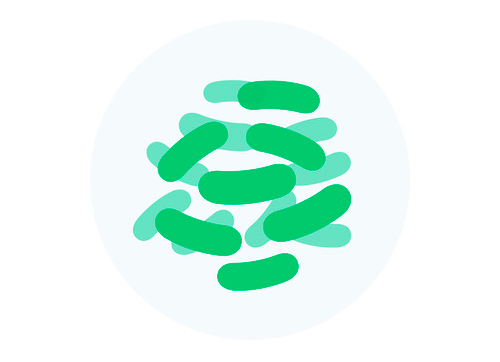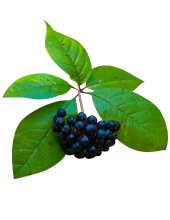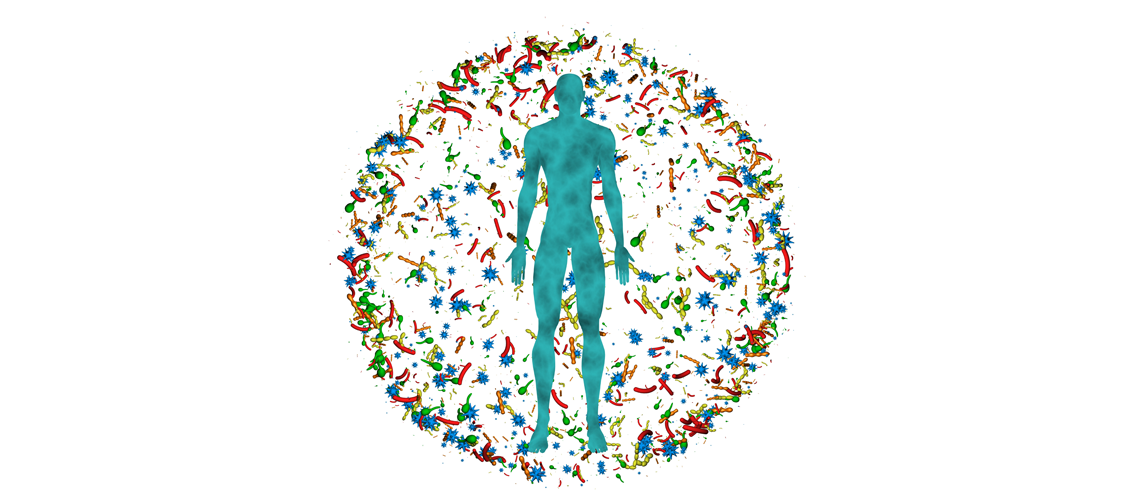The common cold is so named because it is the most common disease affecting humans. Not only is it considered the most widespread disease in the world, it can be said that almost 100% of the population will suffer from a cold in their lifetime and will most likely suffer more than one per year. It affects the entire population, from children to the elderly, and most often people with a weakened immune system. These are respiratory tract infections caused by a wide variety of viruses, although the two most important families are those of rhinoviruses and coronaviruses. The incidence of this disease is highest when there are changes or drops in temperature, especially in the fall and winter seasons. They are highly contagious and are transmitted through close contact with infected people early in the onset of symptoms
.
The
main symptoms are usually sneezing, runny and stuffy nose, headache, pharyngeal discomfort (itching, pain, or mucus in the throat), cough, and general discomfort. Although it is usually a mild problem that tends to resolve itself thanks to the action of the immune system (within 7 or 10 days), it is still annoying since it decreases the quality of life of those who suffer from it. In addition, a poorly cured cold can last for months, in addition to being able to lead to complications such as tonsillitis, bronchitis, sinusitis, otitis
and even pneumonia.
Without a doubt, the best strategy against colds is prevention. For this reason, it is essential to comply with a series of hygienic and dietary measures, aimed above all at avoiding contagion, and keeping our immune system strong so that it can defend itself against the attack of viruses or quickly win the
battle.
Strategies for prevention and reduction of symptoms
We can help our immune system with different strategies so that it is able to defend itself against possible infections: intestinal microbiota, herbal medicine and micronutrients.
1. Gut microbiota
The gastrointestinal tract is described as the bodys largest immune organ. It represents the largest contact area of our bodys cells with the environment and contains up to 80% of all antibody-producing cells
.
The intestinal microbiota is a fundamental part in maintaining this mucosa, and according to scientific evidence, the bacteria that are part of this microbiota can limit the adhesion of pathogenic microorganisms to our intestine, in addition to helping to modulate the responses of our immune system.

But this intestinal microbiota can suffer from imbalances (due to stress, certain medications, excessive hygiene, consumption of alcohol and tobacco, sudden dietary changes, among others) that can affect our state of health and, specifically, our ability to defend ourselves against external pathogens.
Therefore, in these circumstances, which are more common than we think, it may be necessary to include a dietary supplement based on patented probiotic strains, generally lactic acid bacteria of the Lactobacillus and Bifidobacterium genera, which can help us to modulate and balance our intestinal microbiota and that, in addition, have proven scientific evidence supporting our immune system.
2. Phytotherapy
There are two plants, included in the group of adaptogenic plants, which combined together have a synergistic action to strengthen our body in the face of severe environmental conditions, with a wide safety profile: andrographis and eleutherococcus.
Andrographis (Andrographis paniculata (Burm.f.) ex Nees) is an herbal plant from India and Sri Lanka, where the extract of its leaves is mainly used in infectious problems. Thanks to the active ingredients of the leaves, the andrographolides, the extracts of this plant contribute to the general resistance of the body, increasing the bodys physiological resistance in case of severe environmental conditions. In addition, it helps to alleviate respiratory problems such as coughs and sore throats.

Eleutherococcus (Eleutherococcus senticosus Maxim.) is a plant of the Araliaceae family that grows spontaneously on the slopes of the Siberian mountains, whose rhizome helps support physical abilities in cases of exhaustion and tiredness. It also helps to reduce the tiredness and fatigue associated with colds. It is a valid aid during the cold season because it helps to support the bodys defenses, as well as to provide relief to the throat and
upper respiratory tract.
We must choose those andrographis and eleutherococcus extracts that have a standardized concentration of their active ingredients and that have their own clinical studies that demonstrate their synergistic properties in supporting our defenses.
3. Micronutrients
We must not forget the role that vitamins and minerals play in the state of our immune system. We should be able to obtain adequate daily amounts with food for a correct state of health, but often we do not succeed and, in addition, there are certain circumstances where the requirements are increased: winter seasons, stress, restrictive diets, age, genetic factors, viral, bacterial and parasitic infections,
etc.
The most important vitamins and minerals for their role in supporting our immune system are: vitamin C, vitamin D, iron, selenium and zinc.
When choosing a dietary supplement with any of these vitamins or minerals, we must choose those that offer organic forms, since they are better absorbed by the body and, therefore, the effectiveness will be greater, in addition to being more respectful of our body.
Paula Saiz

• Degree in Biological Sciences from the Complutense University of Madrid, specializing in plant biology.
• Master in Applied Plant Biology from the Complutense University of Madrid.
• Collaboration in the Endothelial Pathology Unit of the Ramón y Cajal Hospital in Madrid: clinical trials and anti-aging phytotherapy.
• He is currently part of the Department. 100% Natural Technical and Documentation and Training.
All rights reserved ©. The reproduction, partial or total, of the content in any form is prohibited without the prior written consent of Cien Por Cien Natural SL. If you want to share the information, reproduction is allowed by citing Cien Por Cien Natural SL or using the link on their website. Cien Por Cien Natural SL is not responsible for misuse of the content of the article
.






